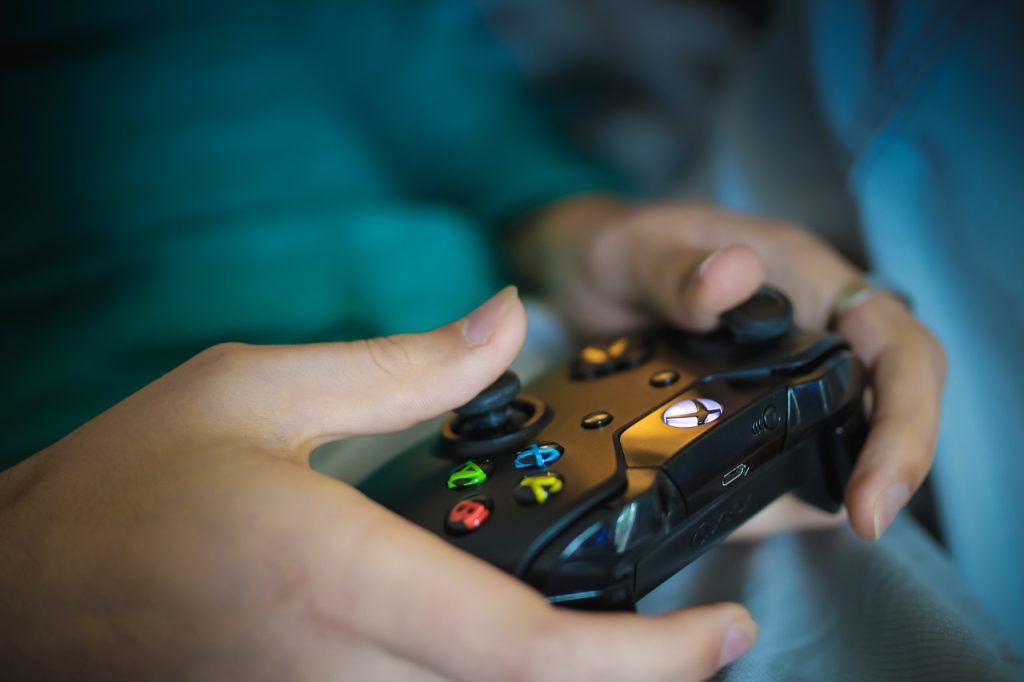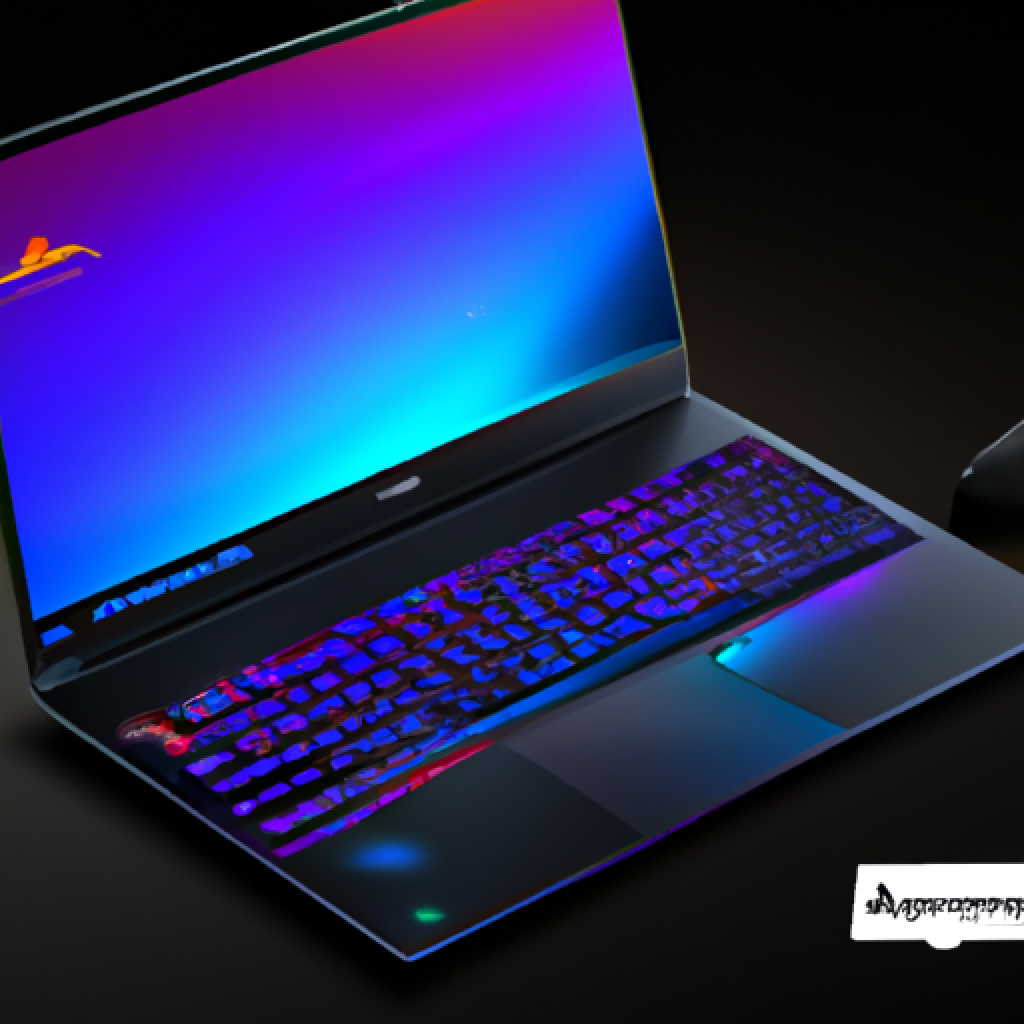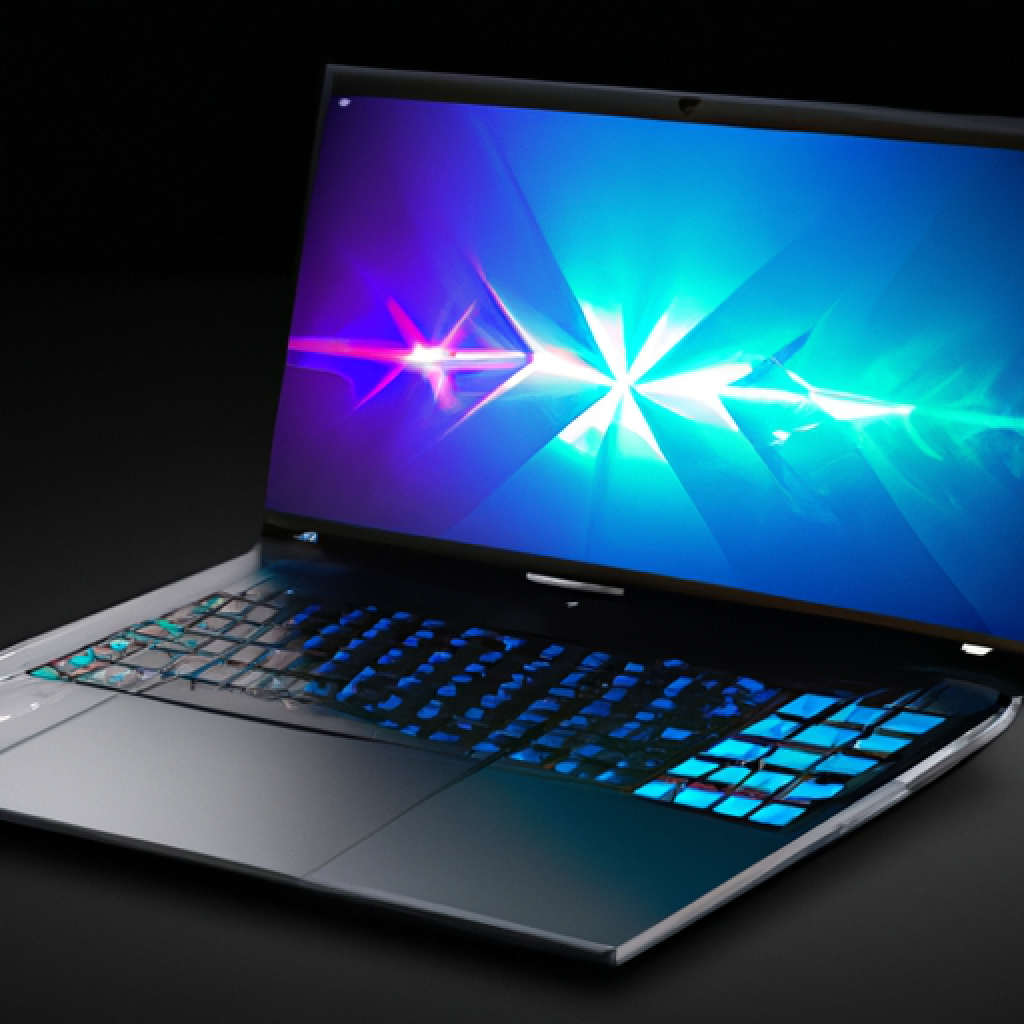What Is The Best Size For A Gaming Laptop?

I’ve always been a fan of gaming, and I’ve recently found myself in the market for a new laptop to enhance my gaming experience. As I began my search, one question kept popping up in my mind: what is the best size for a gaming laptop? It’s a crucial decision to make, as the right size can greatly impact your gaming performance and overall comfort. So, in this article, I will explore the different sizes available in the gaming laptop market and help you determine the best size for your gaming needs.

Understanding Laptop Size Classification
Screen Dimension
Laptop size classification is primarily determined by the screen dimension. The screen size directly influences the overall physical dimensions and weight of the device. Screen dimension is typically measured in inches, and it refers to the diagonal length of the screen. The larger the screen size, the bulkier the laptop tends to be.
Physical Dimension
Apart from the screen dimension, the physical dimension of a laptop includes the width, depth, and thickness of the device. This dimension plays a crucial role in determining the overall form factor and ergonomics of the laptop. It affects the usability and portability of the device, making it an essential aspect to consider when choosing a gaming laptop.
Weight Variety
The weight of a laptop is another key classification factor. It directly correlates with the physical dimension and influences the ease of portability. A gaming laptop with a larger screen and more powerful hardware tends to be heavier, while smaller laptops designed for mobility are generally lighter. The weight variety in gaming laptops allows individuals to choose the option that best suits their needs, whether it be mobility or powerful performance.
The Importance of Size in Gaming Laptops
Performance Contribution
The size of a gaming laptop contributes significantly to its performance. Larger laptops offer more space for advanced cooling systems, allowing for better heat dissipation and improved performance. With larger physical dimensions, these laptops have more room for powerful hardware components such as high-end graphics cards and processors. This enables gamers to play demanding games with high settings and experience smoother gameplay.
Portability Factor
On the other hand, smaller gaming laptops are designed to be highly portable. They offer a compact and lightweight form factor, making them easy to carry around. While they may not have the same level of performance as larger laptops, portable options are ideal for gamers who travel frequently or attend gaming events. The portability factor allows gamers to enjoy their favorite games on the go without compromising too much on performance.
User Comfort
Size also plays a crucial role in user comfort during gaming sessions. With a larger laptop, users have more space for a comfortable keyboard layout and a larger touchpad. The extra screen real estate allows for a more immersive gaming experience, making it easier to spot details in game environments. Additionally, larger laptops often feature better speakers, providing enhanced audio quality. However, smaller laptops may be more convenient for gamers with limited desk space, as they require less surface area to set up.
Exploring Different Laptop Sizes
Ultra-Portable (13 inches and below)
Ultra-portable gaming laptops typically have screen sizes ranging from 11 to 13 inches. These laptops are incredibly slim, lightweight, and highly convenient for gamers on the move. They offer excellent portability and are perfect for casual gamers or those who prioritize mobility over high performance. However, due to their compact size, these laptops often have limited hardware capabilities and may not be suitable for running demanding games at maximum settings.
Portable (14-15.6 inches)
Portable gaming laptops are the most popular choice among gamers due to their balanced combination of performance and portability. With screen sizes ranging from 14 to 15.6 inches, these laptops provide a good compromise between gaming capabilities and mobility. They offer a larger screen for better immersion and more comfortable gameplay, while still being relatively easy to carry around. Portable gaming laptops usually have decent cooling systems and hardware configurations that can handle most modern games effectively.
Large/Stationary (17 inches and above)
Large or stationary gaming laptops are designed for gamers who prioritize raw performance over portability. These laptops typically feature screen sizes of 17 inches and above, providing gamers with expansive displays and immersive gaming experiences. The larger form factor allows for more powerful hardware configurations and advanced cooling systems. While these laptops are not as portable as their smaller counterparts, they excel in delivering top-notch performance, making them ideal for professional gamers and enthusiasts.
Performance and Size Relationship
Cooling Capabilities
One critical factor influenced by laptop size is its cooling capabilities. Larger gaming laptops have more physical space to incorporate advanced cooling systems such as multiple fans, heat pipes, and ventilation vents. These cooling mechanisms effectively dissipate heat generated by high-performance hardware, ensuring that the laptop remains at optimal temperatures during intense gaming sessions. In contrast, smaller gaming laptops often have limited cooling capabilities due to their compact size, which can result in thermal throttling and decreased performance during extended gameplay.
Hardware Limitations
The size of a gaming laptop also impacts its hardware limitations. Smaller laptops often have limited space for high-end components, such as powerful processors and graphics cards. This can result in lower performance capacity compared to their larger counterparts. While smaller laptops can still handle many games, they may struggle to run resource-intensive titles at maximum settings. On the other hand, larger laptops can accommodate top-of-the-line hardware configurations, enabling gamers to enjoy smooth and immersive gaming experiences, even with demanding games.
Potential for Expansion
When it comes to expandability, larger gaming laptops have the upper hand. They typically have additional slots for upgrading components such as RAM and storage, allowing users to enhance their gaming performance over time. This flexibility in upgrading hardware is limited in smaller gaming laptops due to their compact nature. While these laptops may still offer some level of upgradability, it is usually more restricted compared to larger models. Gamers who value future-proofing their devices and enjoy the ability to upgrade their hardware might find larger laptops more desirable.

Screen Resolution Relative to Size
Pixel Density
Screen size also affects the pixel density of a gaming laptop, which refers to the number of pixels per inch on the screen. A higher pixel density results in a more detailed and sharper image on the display. Smaller laptops with higher screen resolutions can provide stunning visuals and deliver an immersive gaming experience. Conversely, larger laptops with the same resolution may appear slightly less sharp due to the lower pixel density spread across a larger screen. However, the difference in pixel density may not always be noticeable to the average gamer.
Game Graphics Display
The screen size of a gaming laptop influences how game graphics are presented. Smaller laptops tend to have smaller screens, which can lead to more concentrated and intense visuals. Gamers who prefer a more immersive experience may find smaller laptops with larger resolutions more appealing, as they offer a higher level of detail within a smaller field of view. On the other hand, larger laptops with larger screens provide a more expansive view, allowing gamers to appreciate game environments with more breadth. The display preference ultimately depends on personal preferences and gaming habits.
Effects on Performance
It is important to note that screen size has no direct impact on gaming performance. The resolution and image quality settings have a more significant impact on performance than the size of the screen itself. However, for gamers who prioritize visual clarity and detail, smaller laptops with higher resolutions can offer a more visually pleasing experience. Gamers who engage in competitive multiplayer games may opt for larger laptops with lower resolutions and higher refresh rates for smoother gameplay. Ultimately, the choice depends on individual preferences and the type of games frequently played.
Portability and Size Correlation
Ease of Transportation
The correlation between portability and laptop size is evident. Smaller gaming laptops, by nature, are easier to transport due to their compact size and lighter weight. They are ideal for gamers who frequently travel or require a device that can be easily moved between different locations. These laptops fit comfortably in a backpack or carry-on bag, making them convenient for gamers on the go. Larger gaming laptops, while bulkier, may still be transportable but are often better suited for stationary setups due to their weight and dimensions.
Suitability for Travel Gaming
For gamers who enjoy gaming on the road, whether it’s during long flights or coffee shop sessions, smaller laptops are the preferred choice due to their mobility. They can be quickly set up and offer a compact gaming experience without the need for additional peripherals. On the other hand, larger laptops may require more extensive setup and additional accessories such as external keyboards and mice to ensure maximum comfort during gaming sessions. For gamers who prioritize gaming performance over mobility, larger laptops can still be a viable option, provided they are willing to sacrifice some level of convenience.
Impact on Gaming Setup
Laptop size also affects the overall gaming setup. Smaller laptops require less desk space and are better suited for gamers with limited room or those who prefer a clutter-free gaming area. They offer a compact solution, allowing for easy maneuverability and a clean setup. On the contrary, larger gaming laptops with their immersive displays and extensive hardware may require a dedicated gaming desk or table. These laptops usually come with a larger footprint, and gamers may need additional space to accommodate external peripherals like gaming keyboards, mice, and speakers.

Comfort Analysis Based on Size
Keyboard Size and Layout
The size of a gaming laptop impacts the keyboard size and layout, which directly affects user comfort during gaming sessions. Smaller laptops often have smaller keyboards with narrower key spacing and may result in cramped hand positions, especially for individuals with larger hands. However, some compact gaming laptops feature well-designed keyboards that provide a comfortable typing and gaming experience, despite the limited space. Larger laptops, on the other hand, offer full-sized keyboards with more room for dedicated gaming keys and customizable lighting effects, providing a more comfortable and enjoyable gaming experience.
Screen Viewing Comfort
Gaming laptops come in various sizes, and each size offers a different screen viewing comfort level. Smaller laptops with screens below 14 inches may require users to strain their eyes to see details in games due to the smaller screen real estate. However, they offer a more focused and concentrated display that can enhance the gaming experience for certain individuals. Larger laptops, with their wider screens, provide a more relaxed viewing experience and reduce eye strain, especially during long gaming sessions. The optimal screen size for viewing comfort ultimately depends on personal preferences and individual visual acuity.
Potential Strain Risks
Prolonged gaming sessions can lead to various strains on the body, and the size of the gaming laptop can contribute to these risks. Smaller laptops may result in discomfort due to their compact keyboards and smaller touchpads, potentially leading to hand and wrist strain for individuals with larger hands. In contrast, larger laptops with spacious keyboards and touchpads usually offer a more ergonomic experience, reducing the risk of strain-related injuries. However, it is important to maintain proper posture and take breaks during gaming sessions, regardless of the laptop size, to minimize strain risks and ensure overall well-being.
Common Gaming Laptop Size Preferences
Preferences of Professional Gamers
Professional gamers often prioritize performance over portability, opting for larger gaming laptops with expansive screens and powerful hardware configurations. These laptops provide professional gamers with the necessary tools to compete at the highest level, offering maximum gaming performance and optimal visual clarity. The larger form factor allows for better cooling, ensuring consistent performance during extended gaming sessions. Professional gamers often have dedicated gaming setups, making portability a secondary concern compared to raw performance.
Casual Gamer Preferences
Casual gamers, on the other hand, may prioritize portability and convenience over maximum performance. They prefer smaller and more compact gaming laptops that allow for easy mobility and can be used in various settings. Casual gamers often enjoy gaming as a form of relaxation or entertainment, and portability enables them to enjoy their favorite games wherever they go. While not as powerful as larger laptops, portable options provide sufficient gaming capabilities for casual gamers who do not require top-tier performance.
Trending Size Choices
The gaming laptop market constantly evolves, and certain size choices become more popular over time. Currently, 15.6-inch gaming laptops are the most prevalent choice among gamers. They strike a balance between performance and portability, providing a comfortable screen size without sacrificing too much on mobility. Smaller laptops, particularly those in the 13-14-inch range, are also gaining popularity due to advancements in hardware technology, allowing for better performance in compact form factors. Additionally, as gaming laptops continue to become thinner and lighter, ultra-portable options may see an increase in demand among gamers.

Choosing the Ideal Gaming Laptop Size
Assessing Personal Needs
Choosing the ideal gaming laptop size is a highly personal decision. Evaluating personal needs should be the first step in the decision-making process. Consider whether portability or raw performance is of higher importance, the available desk space for gaming setups, and whether the laptop will primarily be used for travel or stationary gaming. Assessing these factors will help determine the ideal size range that aligns with individual gaming preferences and requirements.
Considering Game Types
The type of games regularly played also influences the ideal gaming laptop size. If the focus is on casual gaming or less demanding titles, a smaller and more portable laptop may suffice. Conversely, gamers who primarily play graphically-intensive AAA titles or engage in competitive gaming may require a larger screen size and more powerful hardware. Considering the game types played allows for a better understanding of what size laptop is best suited to deliver an optimal gaming experience.
Planning for Future Use
When investing in a gaming laptop, it is essential to consider future use. Gaming requirements and preferences may change over time, and having a laptop that can adapt to these changes ensures longevity and value for money. A laptop with a large display and upgradeable hardware components provides room for growth, allowing gamers to upgrade their devices rather than investing in an entirely new system. Considering future use ensures that the chosen laptop size remains relevant and capable of meeting the evolving needs of the gamer.
Addressing Size Related Limitations
Addressing Weight Issues
While larger gaming laptops often offer more powerful performance, they can be heavy and cumbersome to carry. Addressing weight issues is crucial, especially for gamers who frequently travel or require a highly portable device. Opting for lightweight materials such as carbon fiber or choosing gaming laptops with slimmer profiles can significantly reduce the weight. Additionally, investing in a quality backpack or laptop carrying case with proper padding and support can alleviate the strain of carrying a heavier laptop.
Space Constraints
Owning a larger gaming laptop, particularly those with wider screens, can present challenges in terms of space constraints. Limited desk space or a lack of room for proper laptop setup may hinder the gaming experience. Addressing space constraints can be done by optimizing the gaming area or investing in accessories such as laptop stands or external monitors. Proper planning and organization can help create a comfortable gaming environment, ensuring that the chosen laptop size does not become a hindrance.
Possibilities for Peripheral Additions
Despite the size limitations, gaming laptops offer the potential for peripheral additions. The addition of external peripherals can enhance the gaming experience and address any limitations encountered due to laptop size. External keyboards, mice, headphones, and monitors can be connected to a gaming laptop, improving comfort, visual quality, and audio immersion. This flexibility allows gamers to customize their setup based on personal preferences and optimize their gaming experience regardless of the size of the laptop itself.
In conclusion, choosing the best size for a gaming laptop is a subjective decision that depends on individual preferences, gaming habits, and specific needs. Understanding the various factors that come into play, such as performance contribution, portability, user comfort, and space requirements, is crucial in making an informed decision. By assessing personal needs, considering the game types played, planning for future use, and addressing size-related limitations, gamers can find the ideal gaming laptop size that provides a perfect balance between performance, portability, and overall gaming enjoyment.








